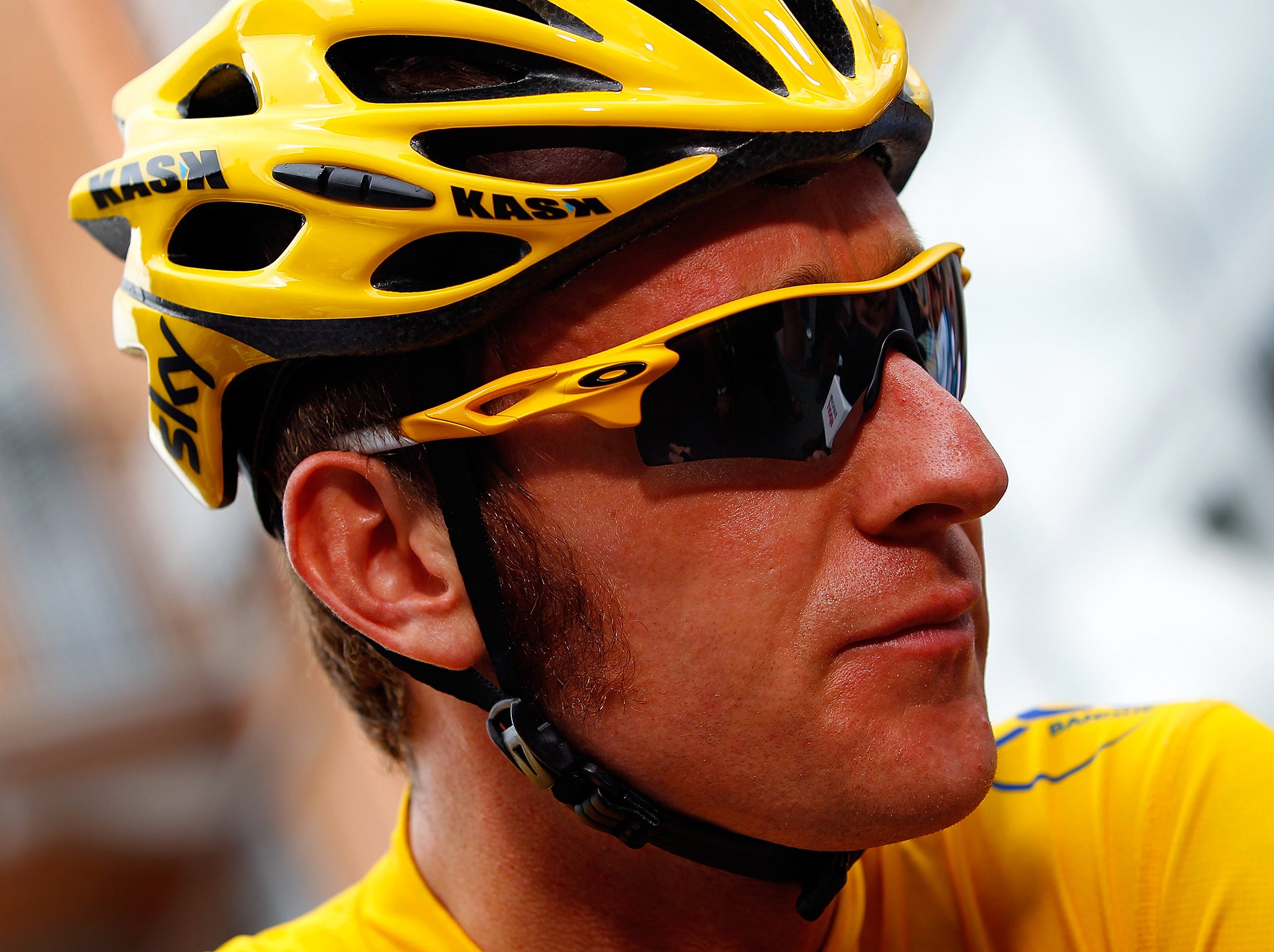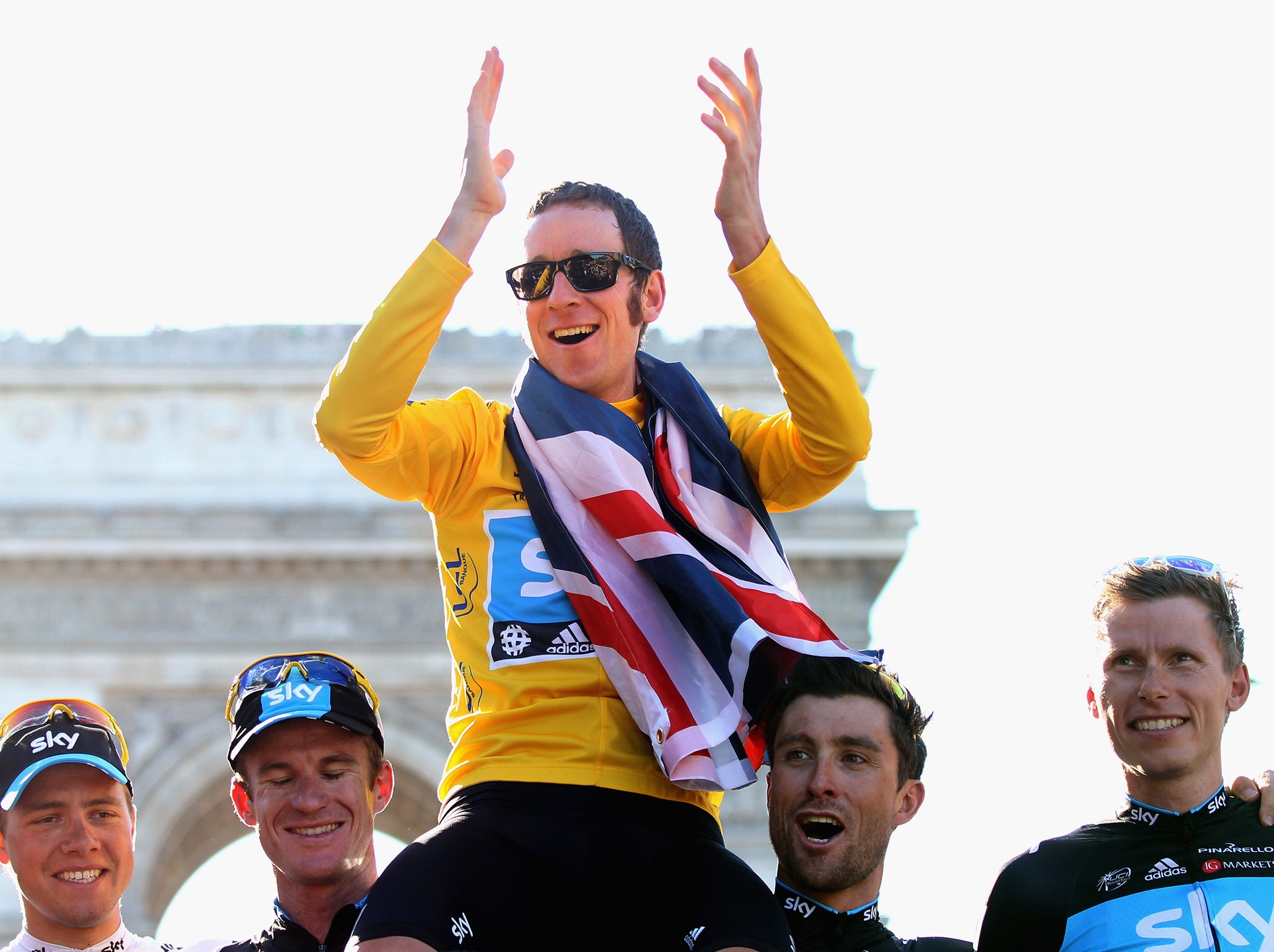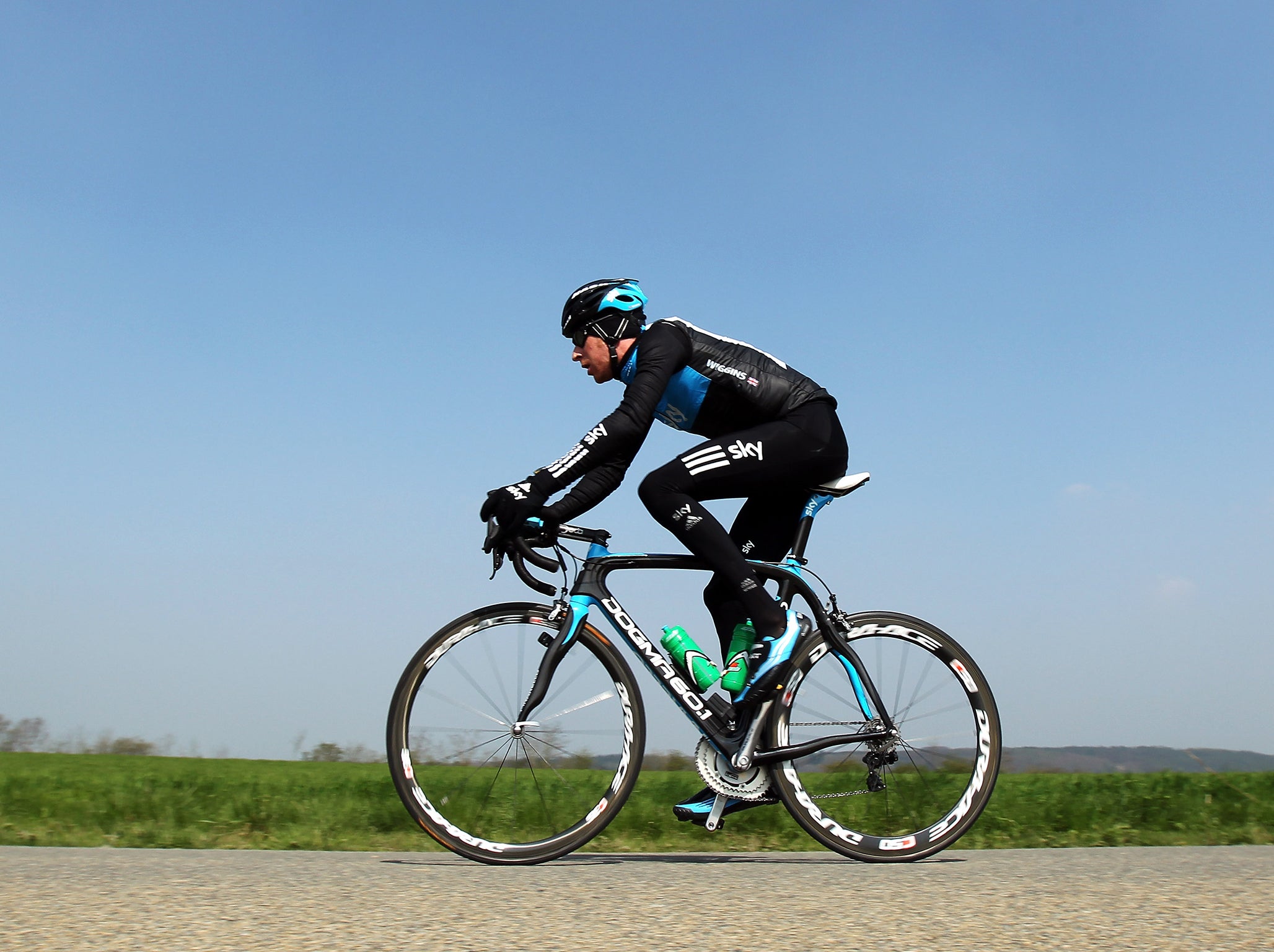Sir Bradley Wiggins ‘strongly refutes’ findings of explosive parliamentary report and vows to give his side of story
The DCMS committee's report, published on Monday, accused the 2012 Tour de France winner and other Team Sky riders of unethically using the drug triamcinolone

Your support helps us to tell the story
From reproductive rights to climate change to Big Tech, The Independent is on the ground when the story is developing. Whether it's investigating the financials of Elon Musk's pro-Trump PAC or producing our latest documentary, 'The A Word', which shines a light on the American women fighting for reproductive rights, we know how important it is to parse out the facts from the messaging.
At such a critical moment in US history, we need reporters on the ground. Your donation allows us to keep sending journalists to speak to both sides of the story.
The Independent is trusted by Americans across the entire political spectrum. And unlike many other quality news outlets, we choose not to lock Americans out of our reporting and analysis with paywalls. We believe quality journalism should be available to everyone, paid for by those who can afford it.
Your support makes all the difference.Sir Bradley Wiggins has described a parliamentary report that has heavily criticised him and the cycling team he used to lead as "sad".
The Digital, Culture, Media and Sport (DCMS) committee's report, published on Monday, accused the 2012 Tour de France winner and other Team Sky riders of using the drug triamcinolone not for the stated purpose of treating asthma but because it helped them lose weight without compromising power.
It was revealed in 2015 by Russian computer hackers that Wiggins had applied for therapeutic use exemptions (TUEs) to have injections of the powerful corticosteroid before three of his biggest races, including the 2012 Tour.
That triggered a chain of events which took in a UK Anti-Doping investigation into a claim he was injected with triamcinolone at his last warm-up race before the 2011 Tour without permission - something he and Team Sky have always denied.
It was said instead he was given a legal decongestant via a nebulizer - a claim UKAD has been able to neither prove nor disprove because of a lack of medical records.
Based on new evidence from an unnamed source, as well as written testimony from Wiggins' doctor Richard Freeman and his former coach Shane Sutton, the committee said it did not buy the legal decongestant story and believed the team broke its frequently-cited commitment to only use medication for medical purposes.
In a devastating comment, Sutton told the committee that "what Brad was doing was unethical but not against the rules".

But in a statement, Wiggins said: "I find it so sad that accusations can be made, where people can be accused of things they have never done which are then regarded as facts.
"I strongly refute the claim that any drug was used without medical need. I hope to have my say in the next few days and put to my side across."
"Strongly refute" is a phrase used twice by Team Sky in their response to the report, first in relation to the claim they used medication to enhance performance, and second in reply to the allegation a group of riders used triamcinolone to prepare for the 2012 Tour.
These responses are in contrast to the reaction from British Cycling. The governing body's chief executive described the report as "important, thorough and timely" and welcomed its publication.

She listed the numerous changes British Cycling has already made to its medical policies, as well as making sure there are "clear boundaries" between the governing and the team its former performance director Sir Dave Brailsford set up in 2010.
She also confirmed it has asked the General Medical Council (GMC) to investigate the doctor at the centre of the triamcinolone affair, its former Great Britain cycling team doctor Dr Richard Freeman.
But British Cycling was not the only governing body to be censured by the committee, as UK Athletics was also rapped on the knuckles for its record-keeping.
This was related to an infusion of the nutrient L-carnitine Sir Mo Farah received before his London Marathon debut in 2014. While its use is controversial, it is not banned, providing no more than 50 millilitres are infused in a six-hour period.

The treatment was administered by UKA's then medical chief Dr Rob Chakraverty, who is now the England football team's lead doctor, and he told the committee he gave the four-time Olympic champion a legal dose but had not recorded it.
The report said the committee was "shocked" to hear this, particularly as Dr Chakraverty claimed it was the first time he had administered L-carnitine.
It suggested the GMC investigate this failure to properly record the treatment.
In a statement, UKA "acknowledged" the report's publication and said it was "pleased" the committee had noted the progress it had made in record-keeping.
When asked about the criticism of its new doctor, the FA declined to comment.
Join our commenting forum
Join thought-provoking conversations, follow other Independent readers and see their replies
Comments